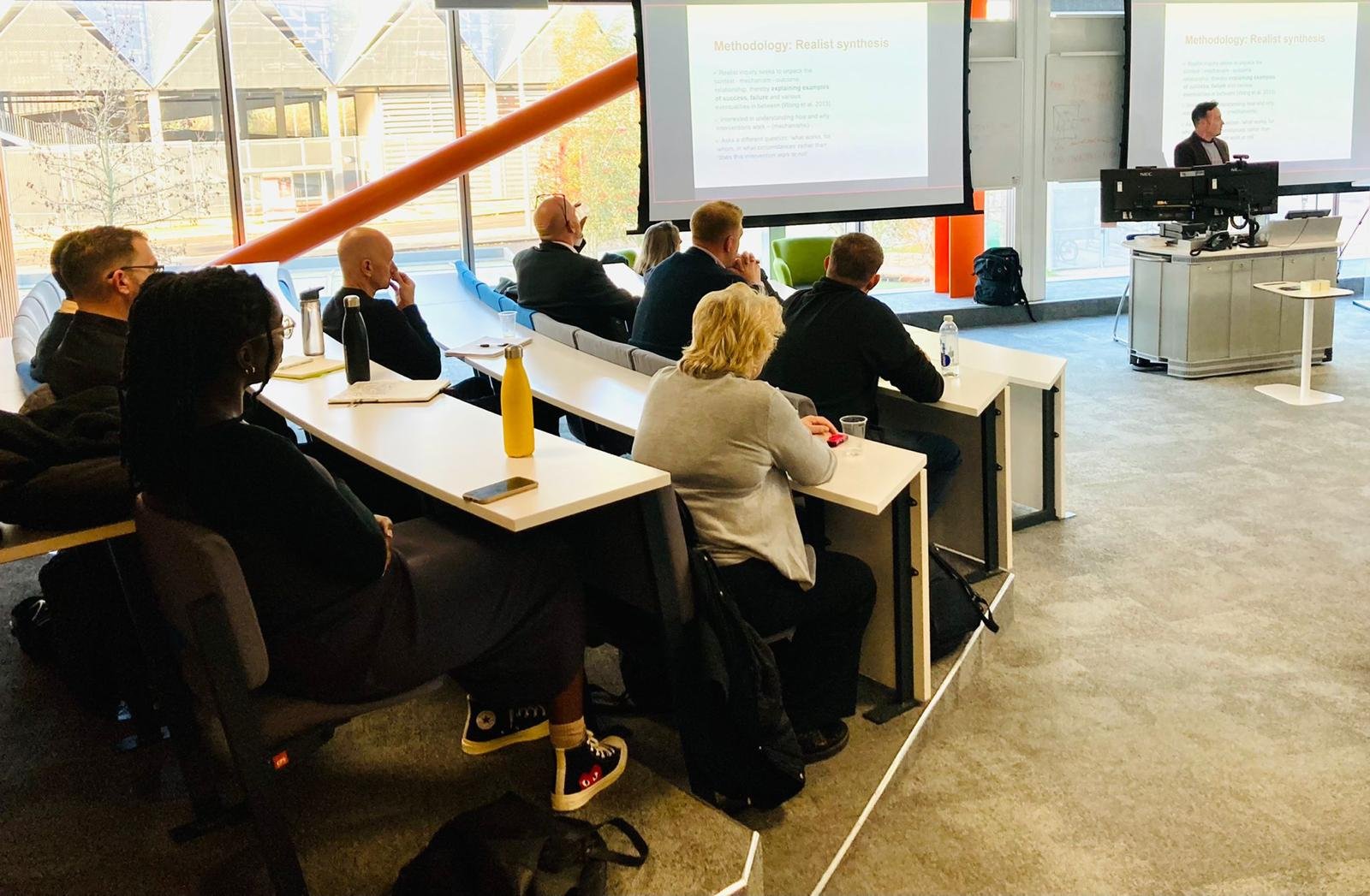Youth Justice Research Q&A: ‘Context sensitive preventative interventions’
The AYJ speaks with Charlie Sutton, co-ordinator and social researcher for Nuffield-funded research on ‘context sensitive preventative interventions’ within youth justice.
Could you tell us a bit about yourself and your team?
We’re experts from different academic fields, which has helped us to get the most out of this project. My name is Charlie Sutton, and I’m responsible for co-ordinating the project activities. I’ve been a social researcher involved in projects relating to education, employment and health since 2013. Professor Stephen Case leads the project, and he incorporates a ‘Child First’ and ‘Positive Youth Justice’ approach to the work.
The rest of the team’s specialties range from health technology to policing and social policy; so a big spread of approaches and expertise that goes into our work!
What was the goal of the research, and why did you think that it was an important area to explore?
The goal was to be able to recommend more effective, comprehensive, child-friendly and sustainable interventions to help stop children reoffending.
We set out to identify and understand the influences in children’s lives that cause or increase chances of reoffending. We thought this was an important area to research, since these influences can then be targeted in interventions (activities used in the youth justice system to prevent children from reoffending).
We set out to understand these factors by establishing the main ideas behind how interventions change behaviour, and how the intervention could work to prevent reoffending. We considered the types of interventions and activities that worked, and for which children and under which circumstances they were effective.
Our focus was the relationship between outcomes and the processes in interventions that encouraged children to change their behaviour/attitudes/thinking, or ‘mechanisms of change’. We were also interested in the influence of different contexts, such as a child’s environment, their relationships, circumstances, experiences, and how these affected the mechanisms of change.
We looked at two different types of intervention: The Referral Order, which seemed to use restorative relationships (repairing the damage caused by crime) to promote change, and Intensive Supervision and Surveillance, which seemed to focus on controlling a child’s risk of reoffending, being responsive to their circumstances and supporting them in addressing their needs.
What were the main findings of the research?
The outcome effects reported in reviews on both programmes only looked at reoffending rates, and did not consider other outcomes like skills development or engagement in education. They looked like they did not work well in stopping children from committing crime again, but the quality of research was generally poor.
The ideas in both interventions seemed to work better within a positive relationship between the child and the adult working with them.
These interventions worked best when the child was included in activities and decisions, and when they were ready to engage in the programme. Children seemed to respond better when they felt that their participation was meaningful and collaborative, rather than feeling a programme was ‘done to them’.
Helping children to develop positive identity change was easier if they had a belief and desire to change. They were more likely to engage when they developed feelings of trust, self-esteem/worth, being valued, being listened to, and feeling a bond.
A focus on a child or young person’s negative features and backgrounds seemed to stop them from changing. When enforcement, control and formal management of children was the focus of the intervention, either, children found it hard to engage or just did it to complete the programme, so the mechanisms which helped them change their attitudes and behaviours could not take place.
What are the implications of these findings for youth justice? Do you think it has shown any other areas/topics that require further research?
The findings helped us to consider how we could guide practitioners and policymakers to help more children change their lives and improve their future opportunities. We discussed our findings with our special advisory group and together we made recommendations:
People working with children in the youth justice system can be more effective if they have a shared understanding of how programme aims and outcomes can be achieved and measured. Policy and practice guidance should emphasise the ideas behind the programme.
Relationships can help children change, but their needs have to be understood as a primary issue in the context of their offending. A focus on meeting needs can help form positive relationships, and will improve engagement over focussing on negative features and the use of formal approaches.
The evaluation of research evidence should be done differently, so that it includes research which explains how programmes work. We should also encourage research which measures positive outcomes rather than just reoffending.
If people are interested in the research, where can they find out more about it?
We have a Wales-focussed online event on Wednesday 7th December, from 2-4pm, centring on child-first approaches to youth justice. Findings and discussions will also be relevant to practitioners working in England. Register to attend by contacting: diana.fologea@southwales.ac.uk.
Our collection of project reports explains the project focus, activities, findings and recommendations in detail. They are available here.
For more information contact Charlie Sutton at c.sutton2@lboro.ac.uk or for more information on Child First approaches to youth justice contact, Prof. Stephen Case, at s.case@lboro.ac.uk.




